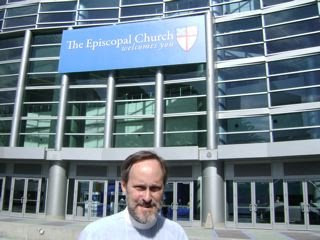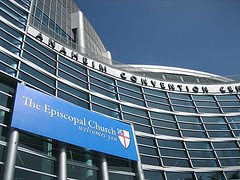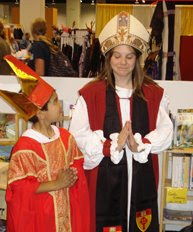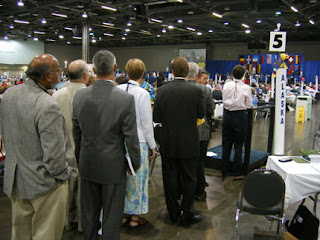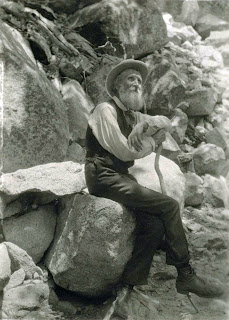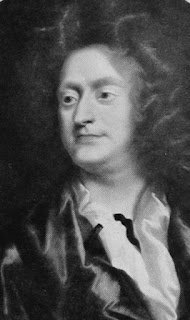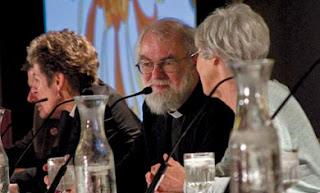 I've just finished reading a wonderful book and I highly, highly recommend it. This book might even save your life. It is that good.
I've just finished reading a wonderful book and I highly, highly recommend it. This book might even save your life. It is that good.An Altar in the World: A Geography of Faith, is the newest offering by Barbara Brown Taylor. She begins by explaining how she was caught up short when a "wise old priest" in Alabama asked her to come preach at his church. When she asked about the subject, he replied "Come tell us what is saving your life now."
This book is her attempt to answer.
In it Taylor writes about taking the time to notice God all around us, and reverencing God in everything and everyone. It is a more radical notion than at first glance.
She writes of how she has noticed again God in church, and God outside church, and God in the world. She writes about how the world needs us to bless things: sticks and leaves, food and animals, and to bless each other. And like Julian of Norwich, we can, if we try, notice the entire universe in a hazelnut. Taylor puts it this way (p. 15):

I can return my attention to everything I need to get done today... Or I can set a little altar, in the world or in my heart. I can stop what I am doing long enough to see where I am, who I am there with, and how awesome the place is. I can flag one more gate to heaven--one more patch of ordinary earth with ladder marks on it--where the divine traffic is heavy when I notice it and even when I do not. I can see it for once, instead of walking right past it, maybe even setting a stone or saying a blessing before I move on to wherever I am due next.
I tried Taylor's suggestions for noticing and blessing during our trip to Anaheim and General Convention, and I must tell you it changed my experience. I found myself outside my normal comfort zone, and gratefully amazed.
Taylor calls it a book not of ideas but of practices, including taking one day a week (Saturday is traditional) as a sabbath -- turning off the television and the computer, and just being in the moment for an entire day.
There is much, much more in this book than I can or want tell you here. I hope you will read this book for yourself and tell me how it is for you. If anyone is interested in reading this book with me, I will schedule time in the fall for a book circle at St. Paul's. We could meet on a weekday or perhaps read this as a group that meets for our Wednesday community night. Or both. Let me know if you are interested. If you are reading this blog from afar, think about reading this book and forming a book circle in your community. And do let me know about your experience.

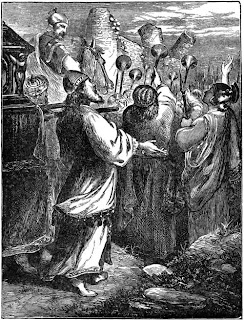

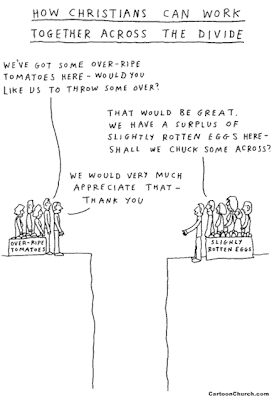

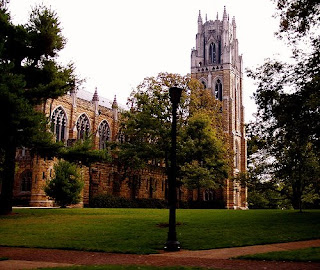


 Dear Friends,
Dear Friends, With the conclusion of General Convention, the beginning of my time as your diocesan bishop fast approaches. Having just returned to the Diocese from the Convention, I want to express to you my thoughts on the two resolutions from the Convention which are garnering the most attention in the media. The first speaks to the current state of our Church's relationship to the Anglican Communion (D025) and the second addresses same-gender unions (C056 substitute).
With the conclusion of General Convention, the beginning of my time as your diocesan bishop fast approaches. Having just returned to the Diocese from the Convention, I want to express to you my thoughts on the two resolutions from the Convention which are garnering the most attention in the media. The first speaks to the current state of our Church's relationship to the Anglican Communion (D025) and the second addresses same-gender unions (C056 substitute). It might appear that the Episcopal Church has radically changed course with various interpretations of General Convention actions. I do not think so.From my perspective, the Episcopal Church has remained on the same course it has followed for at least 40 years - one that has "stretched every nerve" as we have sought to live into the Baptismal Covenant.
It might appear that the Episcopal Church has radically changed course with various interpretations of General Convention actions. I do not think so.From my perspective, the Episcopal Church has remained on the same course it has followed for at least 40 years - one that has "stretched every nerve" as we have sought to live into the Baptismal Covenant.

 We are writing to you as the Presiding Officers of the two Houses of The General Convention of The Episcopal Church. As your friends in Christ, we remain deeply grateful to you for your gracious presence among us recently during our 76th General Convention in Anaheim.
We are writing to you as the Presiding Officers of the two Houses of The General Convention of The Episcopal Church. As your friends in Christ, we remain deeply grateful to you for your gracious presence among us recently during our 76th General Convention in Anaheim.
